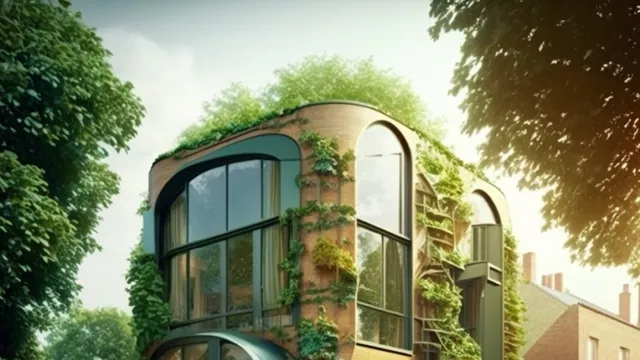Artificial Intelligence (AI) is revolutionizing the architectural landscape, offering a glimpse into the future of home design across the United Kingdom. From the iconic skyline of London to the vibrant streets of Manchester and the historical charm of Birmingham to the cultural hub of Glasgow, AI has crafted the ‘perfect’ homes tailored to the unique characteristics of 20 top UK cities.
Property expert Kunle Barker, renowned for his contributions to Grand Designs Live, has weighed in on the AI-generated representations of these homes. According to Barker, these snapshots skillfully encapsulate each region’s architectural heritage the current state of homes, and envision future possibilities.
“The AI-generated representations of houses across the country are captivating. They skilfully encapsulate the architectural heritage of various regions, the current state of homes, and, most importantly, envision their future possibilities,”
remarked Barker.
A glimpse into tomorrow’s homes
These AI-generated homes offer more than just aesthetically pleasing images—they provide substantial food for thought regarding the future of architecture. While their realism remains to be seen, they serve as a catalyst for innovation and creativity within the architectural industry.
Barker believes these AI-generated homes offer a glimpse into tomorrow’s homes, showcasing the potential evolution of architectural design in response to technological advancements and societal needs. As AI continues to advance, it is expected to play an increasingly significant role in shaping the homes and cities of the future.
Expert insights on the impact of AI on architecture
Barker’s observations shed light on the transformative impact of AI in architecture. With AI algorithms capable of generating intricate designs based on vast datasets, architects and designers can explore new possibilities and push the boundaries of traditional design norms.
“The AI-generated representations of homes provide insight into the potential future of architecture. They challenge us to think differently, innovate, and reimagine the spaces we inhabit,”
noted Barker.
As AI technology evolves, its role in shaping the architectural landscape is becoming increasingly prominent. From streamlining the design process to optimizing energy efficiency and sustainability, AI offers many benefits for architects, designers, and homeowners.
“AI has the potential to revolutionize the way we design and build homes. By harnessing the power of AI, architects can create more efficient, sustainable, and aesthetically pleasing designs that enhance the quality of life for residents,”
explained Barker.
As AI technology advances, its integration into the architectural industry is expected to accelerate. From concept design and planning to construction and beyond, AI will play an integral role in every stage of the architectural process.
The AI-generated representations of homes offer a glimpse into the future of architecture, showcasing the potential for innovation and creativity in design. With AI technology poised to revolutionize the architectural industry, the possibilities for tomorrow’s homes are limitless.





